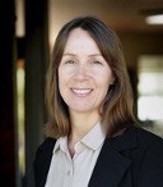This study examined the feasibility of using the Extensions for Community Healthcare Outcomes (ECHO©) model to train primary care providers in rural New Mexico to provide medications for opioid use disorders (MOUD).
Study Overview
Problem: Opioid use is the main driver of overdose deaths—which are increasing at an alarming rate across the country. Effective treatment of opioid use disorder in New Mexico is hampered by severe shortages in the primary care workforce and by how much of the State is rural. The ECHO© model has been used to build clinician capacity for implementing best practices for a range of health conditions, but its use for expanding access to behavioral health is less well explored.
Main Objective: To use the ECHO© model, with additional supports as needed, to train primary care providers in rural New Mexico to provide MOUD for patients with opioid use disorder.
Approach: Using the ECHO© model, the research team aimed to train 240 providers (plus additional clinic staff) in 80 clinics on how to implement MOUD.1 The ECHO© model is a televideo-based strategy for remotely training health care providers using both didactic and problem-based learning. MOUD is an evidence-based approach that uses medication combined with psychosocial and community- based supports to treat opioid use disorder. The research team monitored participating providers’ implementation benchmarks, and provided support as necessary for providers who were not able to reach benchmarks. Inferential analysis was used to understand the feasibility of accomplishing implementation benchmarks and logistic regression analyses were conducted to assess the relationship between participation and dichotomous achievement measures.
Results: To date, published results from this study have shown positive feedback from clinicians on the ECHO© MOUD curriculum, but varying rates of participation in sessions. Consistently reported barriers to attending trainings were provider’s clinical duties and lack of time to participate.1,2 The study has also found that attending more ECHO© MOUD sessions is associated with clinicians making more progress towards providing MOUD (such as completing the required training and paperwork), starting to prescribe buprenorphine to treat opioid use disorder, and adding more patients onto buprenorphine treatment.3 Findings regarding the effectiveness of the program for patients are forthcoming. Publications can be found here.
Notes
1. Salvador JG, Bhatt SR, Jacobsohn VC, Maley LA, Alkhafaji RS, Rishel Brakey H, Myers OB, Sussman AL. Feasibility and acceptability of an online ECHO intervention to expand access to medications for treatment of opioid use disorder, psychosocial treatments and sOupports. Subst Abus 2021;42(4):610-617. doi: 10.1080/08897077.2020.1806184. Epub 2020 Aug 19. PMID: 32814005; PMCID: PMC8552422.
2. Salvador J, Bhatt S, Fowler R, Ritz J, James R, Jacobsohn V, Brakey HR, Sussman AL. Engagement With Project ECHO to Increase Medication-Assisted Treatment in Rural Primary Care. Psychiatr Serv 2019 Dec 1;70(12):1157-1160. doi: 10.1176/appi.ps.201900142. Epub 2019 Aug 22. PMID: 31434561; PMCID: PMC8552451.
3. Salvador J, Rishel Brakey H, Alkhafaji RS, Fuentes J, McWethy M, Rombach L, Abeyta R, Martinez J, Sussman A, Myers O. Participation in ECHO is Associated with Expanding Buprenorphine Treatment in Rural Primary Care for Patients with Opioid Use Disorder. Poster session presented at NAPCRG Annual Meeting; November 2022; Phoenix, Arizona.




